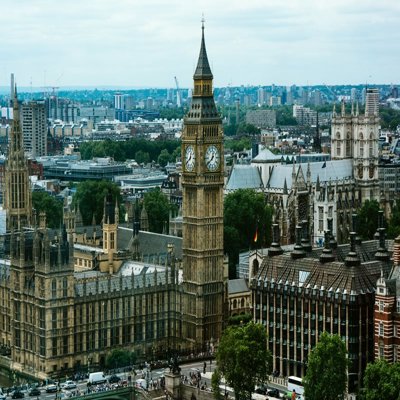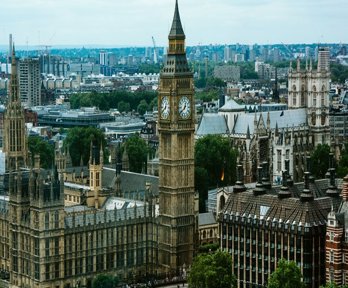This module, comprising seven lessons or half a term's work, focusses on the UK. The aim of this unit is to develop the essential qualities and skills of young geographers through geographical knowledge and geographical enquiry relating to the physical and human environments of The United Kingdom (UK). The subject matter reflects the requirements of the new National Curriculum , has many cross-curricular links and is also intended to reflect some of the ‘fundamental British values’ promoted through the provision of SMSC in schools.
This unit provides a framework for identifying the geographical features of the countries of the UK and understanding how some of these aspects have changed over time. Emphasis will be placed on the development of a wide range of data sources and presentational techniques to investigate and summarise places, patterns, similarities and differences within and between the regions of the UK. Case studies will help to exemplify key geographical themes; for example, weather patterns and city growth. A comparative study of the historical development of Birmingham and Blackpool will elucidate the influence of physical and human factors on the growth, prosperity and decline of settlements.
At each stage of the module, the key information gathered will be entered onto a giant ‘UK Class Map’ display.
The introduction (lesson 1) to this unit of study will outline the constituent countries of the UK, their national emblems, population data and characteristics and cultural characteristics including language, traditions and ways of life. This will lead to two lessons designed to develop children’s awareness of the regional geography of the UK; the first, using aerial photographs and topological mapping to investigate key physical and human features’; the second focusing on ‘counties and products’. Children are encouraged to explore the topographical similarities and differences between regions through a variety of interactive games and the development of a tourist pitch for traditional food products. In lesson 4, the unit changes emphasis to examine the spatial distribution and historical development of settlements within the UK through ‘football teams and cities’. Lesson 5 develops this theme by using Ordnance Survey maps, digital data sources, archive materials and simple fieldwork methodologies to look at the emergence, growth and economic and social challenges facing two contrasting cities (Birmingham and Blackpool). Lesson 6 provides the opportunity to explore multi-culturalism and ‘British values through a study of London and migration into the UK. The final lesson will test the children’s understanding of the module through a series of questions based upon photographic stimulus material, factual recall questions and interactive exercises. In addition, the children’s ability to speak coherently using geographical vocabulary will be assessed through a ‘Just a minute’ panel game.
The essential learning objectives of the module are: to investigate places; to investigate patterns and to communicate geographically. Originality, imagination and creativity will be fostered through enquiry-based learning. Children will learn to appreciate the interdependence between the physical and human landscapes within the UK. They will also develop a broad understanding of the historical development of settlement and be encouraged to express well-balanced opinions on contemporary geographical issues in society.
The UK - Building a picture
This lesson will introduce pupils to the constituent countries of the UK, including an examination of population data/characteristics, emblems and cultural characteristics. Some reference will be made to key historical events which have led to the current political map.
Scaling geographical heights
This lesson is concerned with deepening pupils’ understanding of the physical and human geography of the UK. Aerial photography will be used to identify patterns of topography (mountains, coasts, rivers) and human land use (settlement, economic activity). Pupils’ locational awareness will then be enhanced through a ‘Three Peaks investigation’.
Trace the taste - Counties and products
This lesson begins to look at the influence of farming on the economic prosperity of different parts of the UK. Famous culinary dishes are used to stimulate discussion about why specific food items are produced in certain zones within the UK (climate, soil, historical factors).
Famous football cities
This lesson develops pupils’ insight into the industrial origin of settlements in the UK. The topic is approached through an analysis of football team nicknames which adds to the ‘UK Class Map’ by showing the location of cities and symbols for historical and current economic activity.
B & B - Cities of contrast
This lesson builds on the conceptual framework of Lesson 4 by exploring the historical development of two contrasting UK cities: Blackpool’s seaside/ tourism/services and Birmingham’s industry/transport/business
The best of British
This lesson focuses on multicultural Britain and examines the values of democracy, the rule of law and tolerance within society.
Assessment - How much do you know?
This lesson concludes the module with an assessment of the pupils’ knowledge and skills relating to the UK.
Geographical skills and fieldwork
-
Use of maps and atlases to locate countries; physical and human geographical features; questioning and analytical skills. Cross-curricular links with history (the influence of Celts, Vikings and Romans on UK culture (Lesson 1 )
-
Aerial photography; topological mapping; compass directions, route-planning, grid references. Cross-curricular links with Mathematics (interpretation of statistics, measurement) (Lesson 2)
-
Discursive skills; presentational skills (artistic, oral etc); organisation of information. Links with history (evolution of land use); Science (meteorology and soils) and cultural heritage (SMSC) (Lesson 3)
-
Digital mapping, recognition of O.S. symbols, links with history (the ability to interpret past and present land use patterns) (Lesson 4)
-
The methodology of fieldwork and data presentation and analysis; links with Mathematics (graphical representation of data, grid references, direction) (Lesson 5)
-
The ability to understand the values of tolerance and harmony between different cultural groups. Links with SMSC (Lesson 6)
About the author
David Pyle is currently the Headteacher of Weald Community Primary School in Kent. He has been involved in geographical education for 34 years including curriculum design, leadership of school partnerships in Africa and development of a school Expert Centre for the Global Learning Programme. In his spare time, he enjoys long distance running and public speaking.


